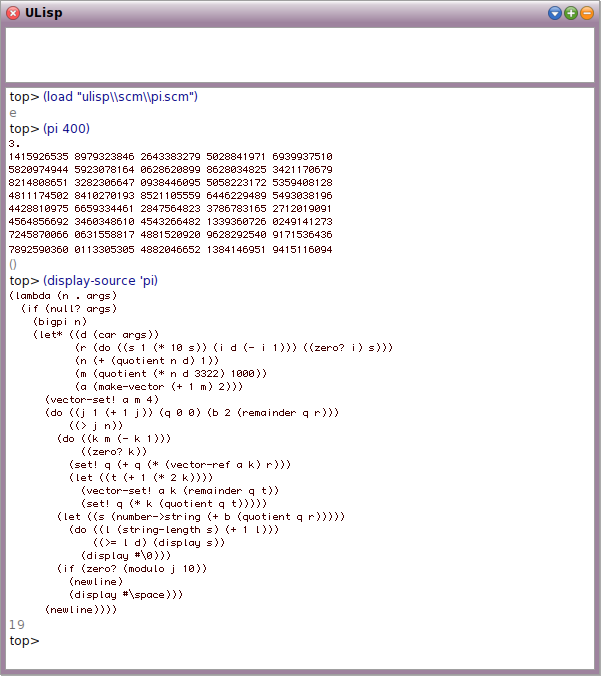
The
ELisp GUI in Squeak 4.5, with an explorer on a ConsCellAt top we have a workspace, at bottom a read-eval-print loop
LispKernelLispKernel implements a Lisp engine completely embedded in Smalltalk, in the same sense as Schelog is a Prolog embedded in Scheme: there is no hard boundary in syntax or evaluation. ConsCell, which can be built from an Array by sending it #asCons.
So for example
prog := #(funcall (lambda (x) (sqrt x)) 5) asConsis a Lisp program. Because it is plain Smalltalk code, if
prog is defined as above somewhere in a method, you will find it by looking for the senders of #funcall (using alt-n); more about this below...read function). 
ELisp GUI in Squeak 4.5, with an explorer on a ConsCellLispKernel is a dynamic (variables are not lexically scoped) Lisp-2 (one namespace for values, one namespace for functions) inspired by Emacs Lisp.LispKernel has been designed for pedagogy (its own author going through the learning process !); it is a tool for understanding what is Lisp and how it works. All the machinery is clearly exposed and hopefully commented well enough. LispKernel one can built an interpreter for its own Lisp dialect. Array ELisp, simply LispKernel augmented with enough primitives and libraries to be somewhat usable SLisp, an experimental dialect allowing Smalltak code within Lisp formsCLisp, a Lisp-1 with lexical scoping and special variables like Common LispULisp, aka the Uncommon Lisp, a Scheme implementationULisp
ULisp GUI in Squeak 4.5ULisp includes the following third-party applications as libraries (all work fine):
LispKernel hierarchy; start by LispKernel itself.
Array syntax can be cumbersome and has definite limits, hence Lisp code can easily come to look a bit weird, like
#(defun #'my-function' (a b) (list a $'and b))where
my-function needs to be quoted (else it would be parsed in the three symbols #my #- and #function) and the quotation mark needs to be introduced as a character since it is the string delimiter in Smalltalk.